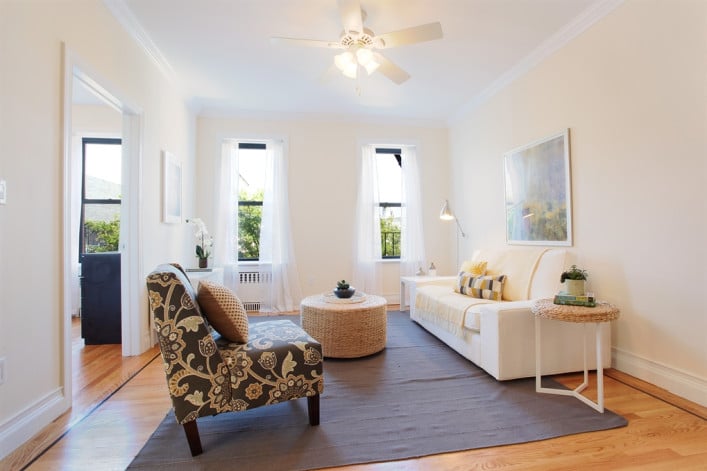Sponsor co-op apartments: 3 good reasons to buy one

In Case You Missed It: Every so often, BrickUnderground digs through the archives to find the best advice our experts have shared through the years.
For a certain type of apartment hunter, a sponsor co-op—that is, an apartment that was once a rental, and is still owned by the original owner or corporation of a building that's now co-op—is the be all and end all of NYC real estate. Why? Because anyone with good credit, who can get a mortgage, the specified down payment and enough reserve funds required by the bank and sponsor can buy one without passing the co-op board, making them excellent options for the self-employed, unemployed and those who might not otherwise pass a board interview. In other words, they’re a great deal—if you know what you're getting yourself into. Here, the pros and cons of buying one:
PROS:
• Less stringent financial requirements: It doesn't matter how much money you make, how long you've been at your job or what you do for a living (which frequently come up in board interviews). Basically, so long as you can pay for the apartment, it can be yours.
• Flexible down payments: If the sponsor is okay with less money down and the financing is still approved, you may be able to put down 20 percent rather than the standard 25 or 30 percent required in most co-ops.
• Quicker buying process: There’s no board review or interview necessary when buying a sponsor unit, which makes the buying process much quicker and easier.
CONS:
• Higher closing costs: New York City and State have transfer taxes of 1.425 to 1.825 percent of the purchase price (depending on the price of the property) that are paid by the purchaser when buying from a sponsor. This tax tends not to be negotiable.
• As is condition: Since many sponsor units are in original condition (lead-based paint and all), expect to pay at least 20 percent of the selling price in renovation work.
• Possible legal problems: Sponsor apartments were rentals before they were offered for sale, so be sure the lease was terminated properly and that the tenant has vacated or was properly evicted, lest he or she return and reclaim the property.
Related:
Board approved: Nailing the co-op board interview
Ace your co-op board application: 14 successful real-life reference letters
The board room: How to get a sponsor to do something they'd rather not


























